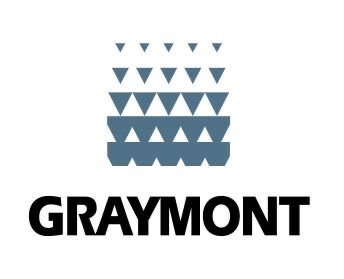Biobased Hemp-Lime Slashes Embodied Carbon
Graham Durrant sprays hemp-lime insulation in a renovation project. Photo courtesy of Graham Durrant
By Dermot Moore
Originally published by HemSpan
Graham Durrant, Founder of Hemp-Lime Spray Ltd., has over 30 years of building and design experience, focusing on environmentally friendly methods. Durrant presented in September at a CPD event at of Margent Farm, Cambridgeshire, co-founded and owned by British filmmaker Steve Barron.
In 2013 Graham completed an MSc Architecture Degree in Advanced Environmental and Energy Studies. He wanted to “champion a green building material” during this time.
Referring to three key issues: embodied carbon, anticipated thermal performance and moisture regulation, Graham looked at hempcrete as a solution. In short, his goal was to find “the most environmentally sane way of getting a comfortable building.”
The Carbon Question
Graham began his presentation with a comparison of conventional and biobased walls. Without a shadow of a doubt, this showed that biobased is far superior where embodied carbon is concerned. Graham informed us that even though there are massive fluctuations in carbon footprint figures, we are still far better off using biobased materials. Comparing hempcrete and conventional builds, Graham calculated for every hempcrete home built, “we are fifty-three and a half tons better off… It’s not even close, the carbon footprint.”
Personal Journey with Hempcrete
Graham then described different ways of casting hempcrete, hand cast and spray cast. Most of the work Graham does involves the spray technique, the process he guided us through. Two key differences he noted between hand cast and sprayed are the ‘much better adhesion’ of sprayed hempcrete and the requirement of fewer people for the task.
Retrofits and Monoliths
The versatility of hempcrete spray was made proven by Graham and his team’s work on a home. They resurfaced dilapidated, uneven walls. The hemp spray had no problem, as Graham demonstrated with video footage of its application. The spray is particularly great for old buildings with uneven surfaces, as varying lines can be quickly followed and filled in by spraying. Another fine example was an old church Graham renovated, where the spray was used to fill in the long, oblong alcoves without causing a drastic reduction in depth.
The following job Graham presented was the largest monolithic hempcrete build at the time. Like Jeremy Blake and Tom Woolley, Graham demonstrated how a hempcrete build can easily gain bad press.
Graham had warned the contractors that the walls were not in line and, therefore, not ready to apply hempcrete. Unfortunately, the contractors chose not to go with his recommendations. This decision caused disruption when glazers for the building arrived. The glazers said the wall was not straight enough to install the glazing. In their efforts to align the walls, the hempcrete was torn.
Eventually, this worked out in the more extraordinary tale of hempcrete’s versatility, as Graham’s team could fill in the cracked wall using hempcrete spray .
READ MORE at HemSpan.com
Subscribe for HempBuild Magazine’s free newsletter
Dermot Moore is a student at University of Uppsala, Sweden
Related Stories:
Please Support Our Classified Advertisers
(To find out more about advertising CLICK HERE).
Help Wanted:
Publications
Hemp Building Directory 2023 - Guide to the International Hemp Building Industry
Available Now! “Hemp Buildings - 50 International Case Studies” by Steve Allin
Hemp Building Research and Training
Hemp Hurd (shivs)/Hemp Fiber/ Hemp Microfiber
Hemp Building Company: Hempcrete Supplies, Training Programs. Longmont, CO
PROducing Sustainable Fibers for Environmentally Conscious Consumers - Prairie PROducers
Hempcrete installers/Insulation subcontractors
Hempknowlogy: Home of the Hempjet: America’s first hempcrete spraying system. Manchaca, TX
Design and build your Hempcrete home with HempStone LLC complete consultants
Lime Binder
Hemp Batt Insulation/Supplies
Hemp Wall Panel Products
Preorder your hempcrete tiny house from Sativa Building Systems
Panel solutions from Homeland Hempcrete
Hemp Blocks
Professional Associations
Events
Carbon Zero Building with Hemp Materials SXSW, Austin TX March 11, 2022























